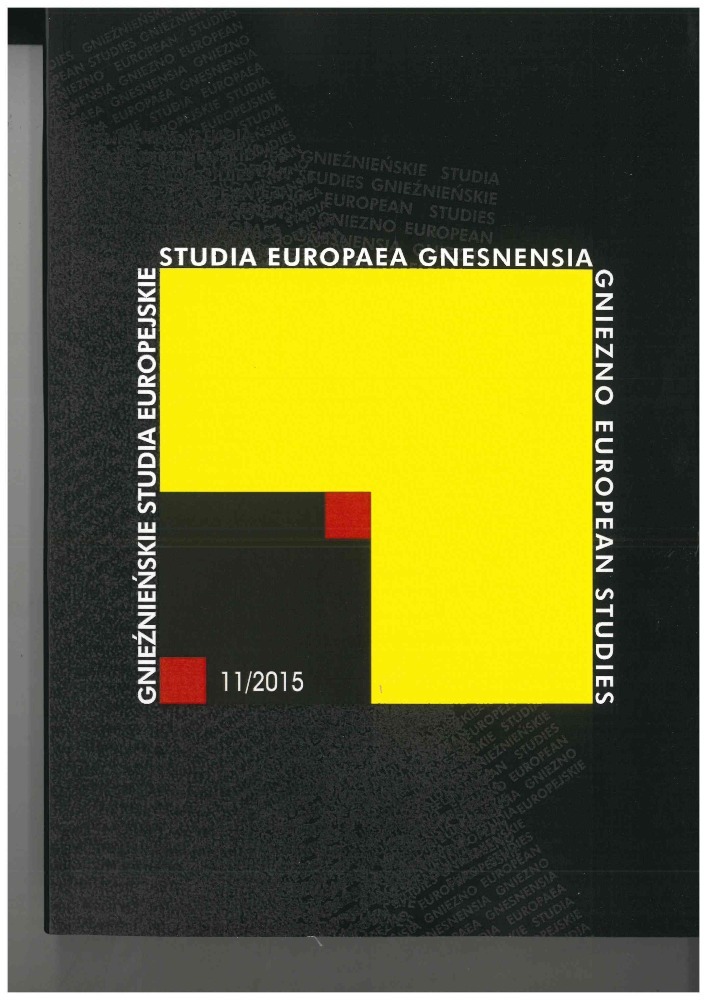Abstract
This study aims to show the forms of political involvement of Western European intellectuals. In doing so, the paper attempts to answer the question about the role they played in Western and Central Europe in the discussed period. The paper also demonstrates the cultural and political causes of their decline.
streszczenie
For the intellectuals of Western and Central Europe, World War 2 was an extremely difficult period. The genocidal policies of the totalitarian states induced them to take a position, while at the same time depriving them of the ability to express their views publicly. This engendered a sense of helplessness; also, apart for a few exceptions, only emigrants could actually perform the function of intellectuals. Among those, an important role to play fell to two groups: German emigrants who distanced themselves from their nation, and Jewish emigrants, who addressed the subject of the Holocaust. After the war, the Iron Curtain also restricted the actions of intellectuals. It soon turned out that the tenor of spiritual life was set by left-wing authors, fascinated with the USSR. The fascination petered out after the disclosure of Stalin’s crimes in 1956. It was terminated definitively by the ruthless suppression of the Prague Spring. It was at that time that conservatism and right-wing intellectuals returned to Europe. Their aim was to reverse the trend and prevent Western Europe from drifting leftward. The change of the paradigm served to settle the scores with the leftist intellectuals. They were accused of subversive activities against the state and nation or treason. Also, in the intellectual circles there emerged a conviction that the previous formula had been exhausted. A new formula of activities of intellectuals was considered particularly in France, by authors of such eminence as R. Aron, M. Foucault, or P. Bourdieu. The deconstruction of the figure of the intellectual was completed by J.-F. Lyotard, who pronounced the death of intellectuals. Involvement of intellectuals remained a valid notion only in the countries of the Eastern bloc. In post-Cold War Europe, the decline of intellectuals became even more discernible. This was occasioned by a number of political and cultural factors. In this respect, particular role should be attributed to postmodernism which, by disproving the Enlightenment understanding of culture, undermined the role played by intellectuals.
Riferimenti bibliografici
Aron R., Mémories, Paris 1983.
Bauman Z., Kultura w płynnej ponowoczesności, Warszawa 2011.
Bering D., Die Intellektuellen. Geschichte eines Schimpfwortes, Stuttgart 1978.
Bock H.M., Nekrologe auf Widerruf. Legende vom Tod des Intellektuellen, „Merkur”, Deutsche Zeitschrift für Europäisches Denken 9/10, 760/761, 2012.
Bock H.-P., Wozu (noch) Intellektuelle? Versuch einer Standortbestimmung, „Merkur”, Deutsche Zeitschrift für europäisches Denken 9/10, 760/761, 2012.
Bourdieu P., Die Erfindung des totalen Intellektuellen, Romanische Zeitschrift für Literaturgeschichte 5, 1981.
Emmerich W., Die andere deutsche Literatur. Aufsätze zur Literatur aus der DDR, Opladen 1994.
Focault M., Wahrheit und Macht. Interview von Alessandro Fontana und Pasquale Pasquino, [w:] Dispositive der Macht. Über Sexualität, Wissen und Wahrheit, Berlin 1978.
Lipski J.J., KOR, Warszawa 2006.
Lyotard J.F., Grabmal des Intellektuellen, Wien 2007.
Łastawski K., Historia integracji europejskiej, Toruń 2008.
Madajczyk Cz., Klerk czy intelektualista zaangażowany, Poznań 1999.
Mann K., Die Heimsuchung des europäischen Geistes, [w:] P.M. Lützeler (red.), Plädoyers für Europa. Stellungnahmen deutschsprachiger Schriftsteller 1915-1949, Frankfurt a. M. 1987.
Mann Th., O Niemczech i Niemcach, [w:] Cz. Karolak (red.), Niemcy o sobie. Naród – państwo – „charakter narodowy” w oczach intelektualistów niemieckich, Poznań 1993.
Meštan A., Tschechische Schriftsteller und ihr Staat 1914-1990, [w:] M. Zybura (red.), Geist und Macht. Schriftsteller und Staat im Mitteleuropa des „kurzen Jahrhunderts” 1914-1991, Dresden 2002.
Miłosz Cz., Rodzinna Europa, Paryż 1983.
Miłosz Cz., Zniewolony umysł, Warszawa 1996, s. 70.
Shore M., Kawior i popiół. Życie i śmierć pokolenia oczarowanych i rozczarowanych marksizmem, Warszawa 2008.
Słabek H., Intelektualistów obraz własny 1944-1989, Warszawa 1997.
Szczepański J., Intellectuals in Contemporary Societies, Stanford 1961.
Tomczak M., Duch i władza. Intelektualiści podzielonych Niemiec wobec państwa i narodu, Poznań 1996.
Traverso E., Auschwitz denken. Die Intellektuellen und die Shoah, Hamburg 2000.
Walicki A., Zniewolony umysł po latach, Warszawa 1993.
Wasserstein B., W przededniu. Żydzi w Europie przed drugą wojną światową, Warszawa 2012.
Wierzyński M., Jan Karski. Emisariusz własnymi słowami, Warszawa 2012.
Winock M., Das Jahrhundert der Intellektuellen, Konstanz 2007.
Zimmermann H.D., Die Fundamentalisten der öffentlichen Meinung. Zum Kampf der Intellektuellen um die symbolische Gewalt, [w:] M. Zybura (red.), Geist und Macht. Schriftsteller und Staat im Mitteleuropa des „kurzen Jahrhunderts” 1914-1991, Dresden 2002.
